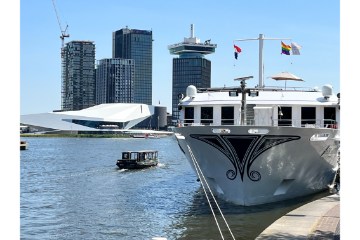Table of Contents

What is trade name law under Dutch legislation?
Trade name law in the Netherlands refers to a company’s right to protect the name under which it operates from deception or confusion among the public (Article 1 of the Dutch Trade Names Act). Unlike trademark law, trade name protection arises automatically through actual use in commerce – no registration is required. This means another business cannot use an identical or confusingly similar name in the Dutch jurisdiction.
Why is trade name law important for businesses in the Netherlands?
Trade name protection prevents competitors from exploiting an established company’s reputation. Without this protection under Dutch law, consumers might mistakenly do business with competitors thinking they’re dealing with your company, potentially causing revenue loss and reputational damage.
Requirements for trade name protection in the Netherlands:
- First use: The company that first actively uses the name has priority under Dutch legislation
- Public use: The name must be visibly used (e.g., on storefronts, websites, invoices)
- No deception: The name cannot misrepresent the business type (e.g., a sole proprietorship using “BV”)
- No trademark infringement: The trade name cannot conflict with existing trademarks in the Netherlands
How does trade name protection work under Dutch law?
In the Netherlands, trade name law is governed by the Trade Names Act and case law from the Dutch Supreme Court (e.g., ECLI:NL:HR:2010:BO1799). Key principles:
No registration required, but burden of proof applies
While registration in the Dutch Commercial Register (KvK) isn’t mandatory, it can serve as evidence of first use. A Dutch lawyer often recommends registering trade names anyway to strengthen your position in potential disputes.
Likelihood of confusion: When does infringement occur?
Dutch courts assess whether a new trade name causes confusion based on:
- Name similarity (sound, spelling, meaning)
- Business activity overlap (a bakery and IT company are less likely to cause confusion)
- Geographic scope (local vs. national recognition in the Netherlands)
Example from Dutch case law:
A café called De Molen in Amsterdam cannot take action against a similarly named café in Groningen, unless it’s a national chain (ECLI:NL:RBAMS:2018:6231).
What legal steps are available for trade name infringement in the Netherlands?
Business owners can take several actions through a Dutch law firm:
1. Cease and desist letter
A formal warning demanding the infringing party stop using the name.
2. Court proceedings
If necessary, an injunction can be sought (Art. 3:296 Dutch Civil Code), potentially with damages (Art. 6:162 DCC).
3. Combining with trademark rights
If the trade name is also registered as a trademark, the Benelux Trademark Act provides additional protection throughout the Netherlands, Belgium and Luxembourg.
Trade Name Law vs. Trademark Law: Key Differences Under Dutch Legislation
| Criterion | Trade Name Law | Trademark Law |
|---|---|---|
| Protection | Automatic through use in the Netherlands | Registration required with BOIP |
| Scope | Only where the name is known | Entire Benelux/EU (depending on registration) |
| Duration | As long as the name is used | 10 years (renewable) |
When do you need a Dutch lawyer for trade name matters?
A specialized Dutch law firm is essential for:
- Name usage disputes (e.g., competitors using similar names in the Netherlands)
- License agreements (franchising, transfers under Dutch law)
- Preemptive research to avoid conflicts
For businesses: The Netherlands Authority for Consumers and Markets (ACM) enforces strict rules against misleading trade practices.
For individuals: Sole proprietorships should beware of imitation by larger companies operating in the Netherlands.
Conclusion: Proactively Protect Your Trade Name Under Dutch Law
Trade name rights are powerful tools for businesses in the Netherlands, but require careful use and sometimes legal action. By consulting with a Dutch lawyer specializing in intellectual property law, you can avoid costly litigation and maintain your brand identity.
Contact our Dutch law firm for a no-obligation consultation about your trade name rights in the Netherlands.

